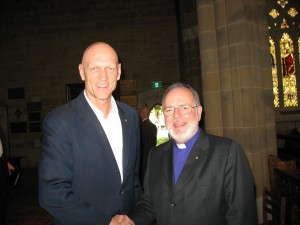A person’s autonomy is a key aspect of the pro-euthanasia/patient assisted suicide/medical killing case. Part 5 of the Report on the Dying with Dignity Bill 2009 is an overview of arguments for and against and includes a good section on autonomy and individual rights lived in social contexts. As John Donne so eloquently put it, “no man is an island entire of itself”.
“Proponents of legalising voluntary euthanasia presented arguments based on the principle of individual rights and autonomy, saying that a competent individual should have the right to make self-governing choices as long as they do not impinge on the rights of others.”
“However, opponents of voluntary euthanasia say it is not a private matter and cannot be considered to be a totally autonomous action.”
End-of-life decision-making does not involve only the autonomy or right to choose of one person alone, and individual choices do not occur in isolation, but instead ramify outwards encompassing a network of other persons, other decisions, and other choices. Moreover, every death has an effect on those who are agents in or witnesses to it, and the manner of the individual’s dying can itself be enormously affecting to those involved in that death. – Prof. Jeff Malpas & Prof. Norelle Lickiss (Submission No. 480 p.3)
In rightly focusing public policy in health care firmly on individual choice, it is nonetheless essential to reflect on the individual’s social context … Autonomy is never absolute, and, health care, particularly palliative care, cannot be conducted in an autonomous vacuum. Little is known about the effects on families and communities of VE/PAS/AS. – Prof. Michael Ashby (Submission No.482 p.10)
It is very important to understand the nature of the act; and the act is an act of killing. This is one of the reasons this is such a fraught ethical area, it is an act of killing, and the act of killing, as with all acts, has an effect on the one who performs the act and on those who witness the act – not just the one who is the victim of it. That is one reason why in our society we have such a prohibition against killing because it has such a strong ethical and moral impact on the agent and not just on the victim. – Prof. Jeff Malpas (Transcript 31/8/09 p.17)
I like the quote from John Donne (1572-1631), the metaphysical poet and clergyman of the Renaissance, on “No man is an island”
“All mankind is of one author, and is one volume; when one man dies, one chapter is not torn out of the book, but translated into a better language; and every chapter must be so translate…As therefore the bell that rings to a sermon, calls not upon the preacher only, but upon the congregation to come; so this bell calls to us all; but how much more to me, who am brought so near the door by this sickness….No man is an island, entire of itself….any man’s death diminishes me, because I am involved in mankind; and therefore never send to know for whom the bell tolls; it tolls for thee.
The full Parliamentary Report on the Dying with Dignity Bill 2009

